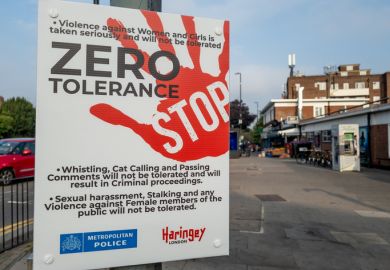A Swiss university is taking the “exceptional” step of advertising a job specifically for women to boost gender diversity among staff.
The dean of the school in question at the École Polytechnique Fédérale de Lausanne said that it was able to make the “aggressive” move because the post is sponsored by industry.
But an official from the Swiss Federal Office for Gender Equality has questioned the legality of the situation.
The advert, posted on the “ETH get hired” job platform on 20 August, seeks “an outstanding woman as a tenure-track assistant professor”, “with the support” of insurance group La Mobilière.
Marilyne Andersen, dean of the school, said that the advert is part of a wider initiative to get more female staff because women make up only 11 per cent of faculty. “We believe we need to be more aggressive and more proactive in trying to find female talent,” she said.
“What we really miss right now is a statistically valid pool [of women] at the beginning [of the recruitment process]…Typically, out of 80 applications only five are from women, which makes it almost impossible that one of those five would be so good to pass on to the shortlist of candidates,” she explained.
“Typically, openings are not gender specific, this is exceptional,” Professor Andersen said, adding that specifying gender in a job advert is not possible for Swiss government-funded university posts.
Andrea Binder, head of the legal division of the Swiss Federal Office for Gender Equality, said that under Swiss law, the exclusive hiring of women can be justified in exceptional circumstances, such as employing staff for a women’s refuge or for the purpose of promoting true gender equality in certain positions.
But she added that in the case of public employers, the latter move must also have a “specific legal basis” and questioned whether industry funding made a difference to the legality of the EPFL advert.
Helen Wollaston, director of Wise, a UK organisation that promotes female talent in science and engineering, said that there could be risks in recruiting in such a way. Some women could be put off applying because they want to know that they have secured a position on their own merit, she said. “Most women do not want to feel that they got a position because they are a woman,” she added.
Advertising in this way also risks a backlash from men who may feel excluded or unfairly disadvantaged, she explained.
She added that in some instances gender-specific advertising could be permitted in the UK.
Register to continue
Why register?
- Registration is free and only takes a moment
- Once registered, you can read 3 articles a month
- Sign up for our newsletter
Subscribe
Or subscribe for unlimited access to:
- Unlimited access to news, views, insights & reviews
- Digital editions
- Digital access to THE’s university and college rankings analysis
Already registered or a current subscriber?





